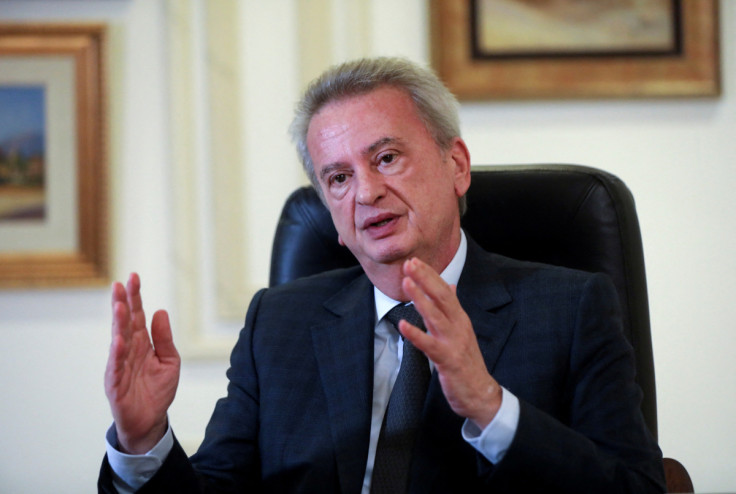Lebanon Central Bank Governor Faces New Fraud, Embezzlement Charges

Lebanese authorities charged longtime central bank governor Riad Salameh, his brother Raja and one of his assistants on Thursday with money laundering, embezzlement and illicit enrichment after months of delay in the high-profile case.
But the development has also prompted fears that authorities in Lebanon, where Salameh retains high-level political backing, could slow down cooperation with European investigators looking into the governor over the same accusations.
His latest term ends in July, and while he says he will not seek to stay on, Lebanon's finance minister told Reuters that Salameh's tenure could be extended along with other public servants as the governor would be difficult to replace.
In comments to Reuters on Thursday, Salameh said the charges were "not an indictment" and pledged to abide by judicial procedures.
"And as you know, one is innocent till proven guilty by a court of law," he said in a written response to questions.
The charges are the product of an 18-month probe by Lebanon into whether Salameh and his brother Raja embezzled more than $300 million from the Central Bank between 2002 and 2015.
Judicial authorities in at least five European countries are investigating the Salameh brothers over the same allegations.
The brothers have denied the charges. The governor has dismissed accusations of illicit enrichment as part of an effort to scapegoat him for Lebanon's financial collapse, which brought new scrutiny of his three decades as governor.
Salameh, central bank governor since 1993, still enjoys backing from powerful Lebanese leaders. Many judges largely owe their appointments to politicians.
TWO INTERPRETATIONS
Salameh was charged last year over illicit enrichment in a case related to the purchase and rental of Paris apartments, including some to Lebanon's central bank.
He was repeatedly summoned for questioning in that case but did not attend the hearings.
The charges filed on Thursday by Lebanese judge Raja Hamoush against the Salameh brothers and an adviser, Marianne Hoayek, included embezzlement, money laundering, illicit enrichment, fraud and tax evasion, according to a senior judicial source.
After the charges were filed, the case was moved to Judge Charbel Abou Samra to review in full before any hearings could be set, the source said. Abou Samra had yet to receive the case file in its entirety, the source said.
The charges represent the first development in the broader case against Salameh since June 2022, when investigator Judge Jean Tannous completed his probe and referred it to the country's top prosecutor, Ghassan Oueidat.
Oueidat referred the case - which included Salameh and a number of unidentified associates - to a Beirut prosecutor to file charges including illicit enrichment, embezzlement, money laundering and tax evasion.
But that prosecutor recused himself and was later removed from the case following a complaint from Salameh.
Oueidat said in January he was planning on naming a new prosecutor to the case but that any newly appointed judge could delay responding to cooperation requests by European judges, pending the Lebanese judge's own investigations.
European investigators are meant to return to Lebanon in early March to continue their probe after a January visit in which they questioned a dozen witnesses, including bankers.
European prosecutors have yet to file any charges. They suspect the Salameh brothers used some of the money to acquire real estate assets in France and across Europe, according to European officials and French court documents seen by Reuters.
Nizar Saghieh of rights watchdog Legal Agenda said the new Lebanese charges could be interpreted as a positive step after months of delay.
"But the second interpretation is that this is just to tell the foreign investigators that we are doing our own probe" and thereby slow down cooperation with the European officials, he told Reuters.
Saghieh said that legal complaints against the judiciary could still slow down the prosecution.
"The risk of paralysis and blockage is still present," he said. "We cannot say that this will definitely yield a result."
© Copyright Thomson Reuters 2025. All rights reserved.





















